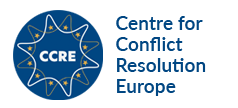Healing Workplaces: The Impact of Work Conflict Mediation
Workplaces, being melting pots of diverse personalities, skill sets, and perspectives, are fertile grounds for conflict. While these differences...
Contact us
The Centre’s goal is to help you resolve actual or potential conflicts. CCRE programmes, training and services can provide crucial support for reducing the risks of conflict and litigation. To this end, the Centre is committed to equipping individuals, groups, and organisations to successfully address and resolve various forms of conflict.
Whatever the outcome of the process of resolving a particular conflict, the Centre believes the results for all parties can consistently include satisfaction with the process and an appreciation for training as well as utilising individuals who serve as neutrals to help individuals, groups and organisations address their particular circumstances and needs.
Workplaces, being melting pots of diverse personalities, skill sets, and perspectives, are fertile grounds for conflict. While these differences...
Family, a place of love, care, and belonging, can sometimes become a battleground for conflicts. Misunderstandings, differences in beliefs,...
Conflict, in one form or another, is an inevitable part of our lives. Whether it's a disagreement with a...

The Advance Mediation training has been instrumental in giving me the skills to understand the role of a mediator, namely to be a facilitator and not a solution giver. I also learnt that people need to be heard and mediation creates a safe space where this can take place.


Copyright © 2023. CCR Europe. All rights reserved.
The emphasis placed on effective listening skills as part of the Mediation Training Course was most helpful. Improving this strength leads to more effective questions being asked by the Mediator which in turn often leads to a positive outcome for the affected parties